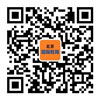
400-805-3685

大家都在關注:19年7月國際學校開放日全國優質國際高中國際初中國際小學推薦
down town = 當燙!
gun = 剛!
big gun = 大剛!
job = 腳脖子!
beautiful = 彪特否!
congratulations = 坑刮出來的屎!
這是火星上的英語么??No!這只是中國式英語!!
笑過之后一起來了解一下到底神馬是中國式英語:
Chinglish refers to spoken or written English language that is influenced
by the Chinese language. The term "Chinglish" is commonly applied to ungrammatical
or nonsensical English in Chinese contexts. Other terms used to described
the phenomenon include "Chinese English", "China English", and "Sinicized
English". “中國式英語”是指深受漢語影響的口頭或書面英語,一般用來形容
不符合英語語法規則或者根本詞不達意的“漢化”英語。"Chinese English" 、
"China English" 和 "Sinicized English"都是用來描述這一文化現象的術語。
中國式英語小史:
English first arrived in China in 1637, when British traders reached
Macao and Guangzhou (or Canton )。 In the 17th century, Chinese Pidgin
English originated as a lingua franca for trade between British people
and mostly Cantonese-speaking Chinese people. This proto-Chinglish term
"pidgin" originated as a Chinese mispronunciation of the English word
"business". Following the 1839-1842 Opium Wars, Pidgin English spread
north to Shanghai and other treaty ports. Pidgin usage began to decline
in the late 19th century when Chinese and missionary schools began teaching
Standard English. 1637年,隨著英國商人來到澳門和廣州,英語第一次“登陸”
中國。17世紀,洋涇浜英語作為英國人和大多數講廣東話的中國人做生意時
的共通語產生了。作為中國式英語的原型,“洋涇浜英語”這個術語來源于英語
中“生意”一詞的中國式錯發音。隨著1839-1842 年的鴉片戰爭,洋涇浜英語北
上傳入上海等其他貿易港口。19世紀晚期,由于中國人創辦的學校和教會學校紛
紛開始教授標準英語,洋涇浜英語逐漸退出歷史舞臺。

入學幫助熱線:400-805-3685010-51268841

咨詢熱線:010-51268841
國際學校擇校
我要給孩子
報學校